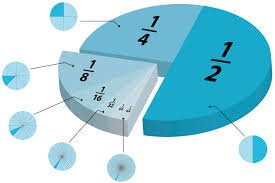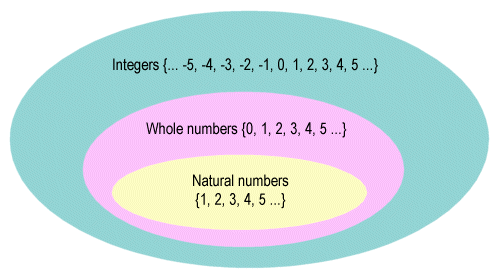Fraction and its components , basic mathematical knowledge
Fraction
.jpeg)
A fraction comprises of Numerator and Denominator. A fraction basically is/are part(s) of a whole. Mathematical every fraction must comprise of a numerator and a denominator.
F is said to be a fraction if and only if F = n/d where n is the numerator and d is the denominator then (n not equal to d) if n=0 and d = 0.
Forms of fractions
As the case maybe , there may exist various forms of fractions due to one or two behaviours or physical representations. But today we focus on the 3 basic forms of fraction.
- Proper fraction
- Improper fraction
- Mixed fraction sometimes called mixed number.
Proper fractions
A fraction is said to be proper if and only if the numerator is less than the denominator.
Mathematically : If n < d then F is said to be proper.
Eg : ½ , ⅖, etc
Improper fraction
A fraction is said to be improper if and only if the numerator is greater than the denominator.
Mathematically: If n > d , then F is said to be improper.
Eg: 3/2, 7/5, 34/13, etc.
Mixed fraction/number
A fraction is said to be mixed if and only if it comprises of a whole number and a proper fraction.
Mathematically : F is said to be mixed iff there exist W(n/d) ,where W is a whole number and n < d.
Eg: 3⅔ , 8½ , etc.
Reading and understanding the above gives you 100% chance to understand how fractions work.
Looking so deep in all definitions above, you will notice that we have two major types of fractions, (1) proper fraction and (2) improper fraction.
Reason: Every mixed fraction is improper fraction and conversely. But improper is the basis of existence of mixed.
Without improper fraction, mixed fraction won't have been in existence.
Remember we involve a number known as a whole number.

What is a whole number?
A whole number is simply positive integers. An integer in the other hand is a positive or a negative whole number(s), zero (0) inclusive.
Mathematically: A number Z is said to be whole if and only if Z = n/d and d = 1 , n any number.
Eg: 1, 2, 3, 3----
I think the above is very clear ? We can boldly answer questions on fractions and whole numbers? I want to hear yes! We can...let's move on…
Conversions.
By the rule: fractions can neither be created nor destroyed but can be converted from one form to another.
Are you surprise? Yes the rule also holds here!
We can convert from
- Improper to mixed
- Mixed to improper
- Proper to decimal and conversely.
The Trio are easy to handle. I will allow you to read and digest all said above, tomorrow we continue from real calculations under fractions.
We stop here today. Any error let me know. We are here as a family.
Love you all. You are free to drop any question in comment section.
Dear friend, you do not appear to be following @wafrica. Follow @wafrica to get a valuable upvote on your quality post!
Congratulations @steemmaths! You have completed the following achievement on the Steem blockchain and have been rewarded with new badge(s) :
Click on the badge to view your Board of Honor.
If you no longer want to receive notifications, reply to this comment with the word
STOPDo not miss the last post from @steemitboard:
Congratulations @steemmaths! You received a personal award!
You can view your badges on your Steem Board and compare to others on the Steem Ranking
Do not miss the last post from @steemitboard:
Vote for @Steemitboard as a witness to get one more award and increased upvotes!